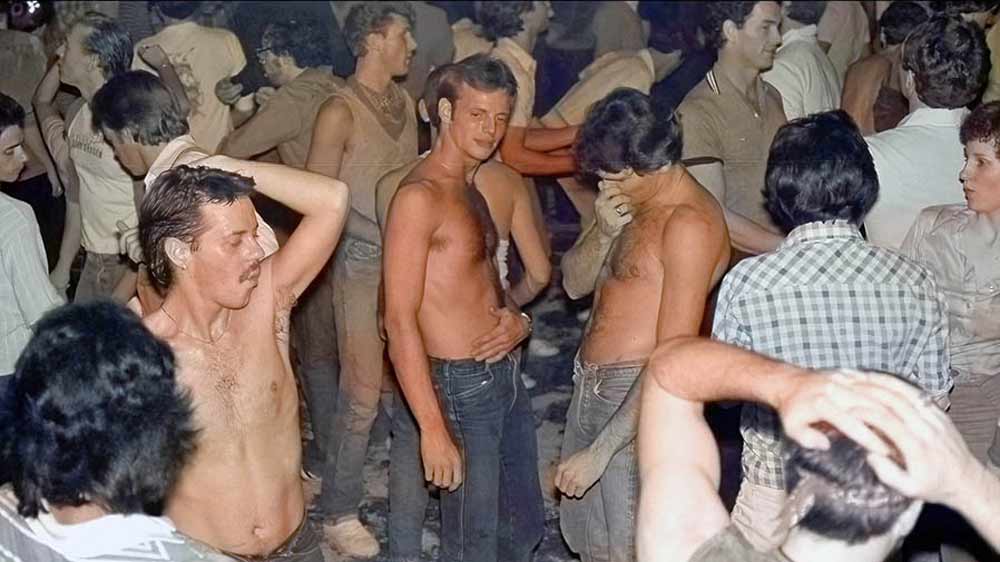Director Marc Saltarelli’s feature documentary, Studio One Forever, has been on the festival circuit for the past few months and has won four awards. After world premiering at the 2023 Outfest LA LGBTQ+ film festival, it is now available to view during the Austin Film Festival on Friday, October 27th, at 9:15 pm in The Hideout Theatre and Thursday, November 2nd, at 6:30 pm in the Galaxy Theater. The filmmakers are scheduled to attend.
Synopsis: Studio One was more than just a disco; it was a mecca for gay men looking for identity in a world that saw them as outcasts. Its adjoining nightclub, The Backlot, merged the gay community with the Hollywood elite for the first time. From 1974-1993, it became the center of nightlife in West Hollywood and the staging ground for the rise of the LGBT rights movement and the fight against the AIDS crisis. Studio One Forever takes the audience on an excursion into LGBTQ+ history through the lens of this groundbreaking club.
So much history was made in the 1960s/70s about many topics, and some of it is well documented and talked about, but others on a much lesser level, if at all. Things were very different at that time for many community members, and some of today’s youth may have yet to learn of those who came before them to make the changes seen since then.
Studio One was a pioneering gay disco club in West Hollywood from 1974-1993. Through Studio One Forever, filmmaker Marc Saltarelli provides an excursion into LGBTQ+ history through the many interviews with numerous celebrities, activists, historians, club employees, and artists who took the stage there. Saltarelli first attended Studio One in the 1980s as a young newcomer to Los Angeles. The film features archival imagery video and memorable music from many eras. There was no way I could keep still while viewing the film when the music played. As I swayed in my chair, I felt transported to years gone by. The music is still played to date – luckily, new generations hear it too.
In 2019, the filmmaker was inspired by news of development near and on the grounds of the original Studio One building. There was discussion at the city level of the possible demolition of a building that held memories for so many and was considered historical. Somebody took action to document the club’s existence and record the oral history of the remaining elders who could relay the unforgettable stories. I say “remaining elders” because so many patrons and others have passed away since the 1980s.
In the interviews, many people talk about the happiness and sense of community there, but it wasn’t always like that. Some interviews are very moving when they disclose the times that were so opposite of the “highs” in more ways than one. Many struggles were faced, including the methods used to decide who entered and others who were not. They were undoubtedly selective and racist to a degree – even though one of the initial co-founders is a person of color.
Interviewees include Chita Rivera, Bruce Vilanch, Thelma Houston, Felipe Rose (original member of The Village People), Charlo Crossley (Bette Midler’s Harlette’s), Melissa Rivers, Roslyn Kind (actress and songwriter, sister of Barbra Streisand), Lance Bass (NSYNC), Sam Harris, Julie Budd, Brian Lane Green, Leigh McCloskey, John Duran (former Mayor of West Hollywood), iconic photographers Greg Gorman and Michael Childers, legendary drag performer James ‘Gypsy’ Haake, and more.
The following statement by the filmmaker was provided in a release: “This film is about our gay history, as seen through the lens of this iconic club. But it’s also a universal story since it was the first club to integrate gay culture with the Hollywood elite many years before Studio 54 and was the site of the first major fundraiser for AIDS, hosted by Joan Rivers. The Backlot – Studio One’s performance space – became Los Angeles’s “must-play” venue and became the hangout of celebrities too numerous to mention and the launching pad for many more. And as AIDS decimated the community, so went the club. As LGBTQ+ stories are on the verge of being forgotten (or even banned), the film preserves this remarkably unknown history as told by the people who lived it.”
The filmmaking team includes producers Stephen Israel (Swan Song, G.B.F., Boy Culture) and Michael Alden (The House, Unzipped, Kissing Jessica Stein) and actress-filmmaker Pauley Perrette (NCIS) as executive producer.
Even if someone did not live the experience of Studio One in Los Angeles, the film is entertaining while providing such a vivid story of cultural history. The film wraps with present-day action and the results of the community coming together (again) to preserve the critical history. Some moments evoke emotions and a possible need for tissues, especially if you are one of many who have lost a loved one.
This documentary is to be noticed, both here during the 2023 Austin Film Festival and on its journey to other festivals and beyond.
Source: AFF, Marc Saltarelli, Studio One Productions
